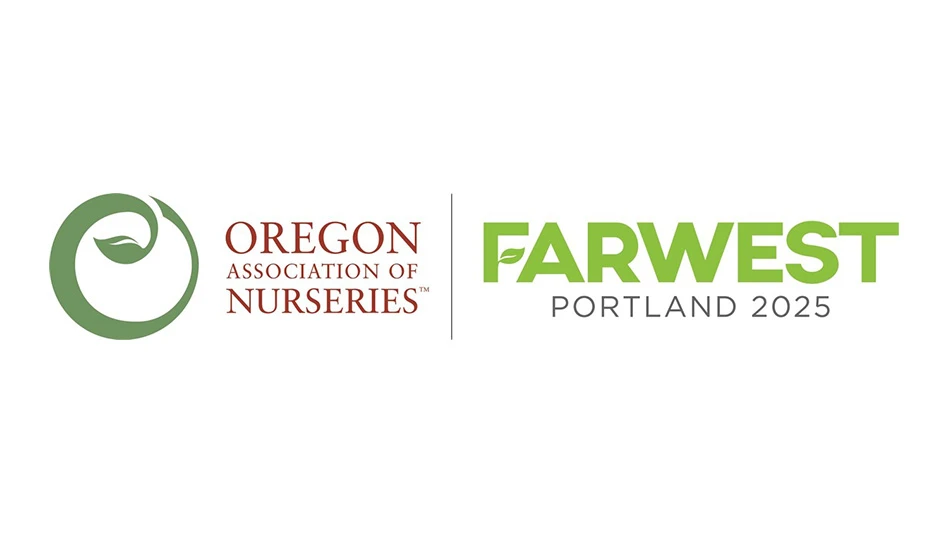Years of experience have led Jon Pinkus of Nortex Wholesale Nursery in Dallas to determine local trials are the best way to find new varieties that work in the extreme Texas climate. He also depends on information gleaned at the OFA Short Course, from breeding companies and distributors who attend other trials, as well as industry publications.
He noted the Dallas Arboretum Trials were a good source for finding new plants. Nortex also does its own trialing.
Recently, Pinkus has seen a big improvement in pentas and found gerbera playing a much bigger role in the marketplace. His biggest surprise has been how much attention calibrachoa receives in his region.
“They don’t take the heat well, but from a retail perspective, consumers see how good they look in the garden center, take them home and discover they’re watering them two or three times a day to keep them looking fresh,” he said. But they’ve been good sellers.
Other products that have worked well are zinnias and begonias, especially Dragon Wing.
The company’s retail garden center has experienced an increased interest in edibles, including vegetable and a strong surge for herbs. The company recently installed an organic display garden with raised beds and offers classes to promote gardening and local growing.
For more: Nortex Wholesale Nursery, (972) 442-5451; www.nortexgrows.com
Tried-and-true
“I don’t go to the California trials,” Hammerle said. “Because they’re too damn early in the year and I don’t have the staff to cover operations.” He visits the Cornell University Trial Gardens and is considering a visit to Penn State University’s Landisville, Pa., trial gardens.
He’s had success with several plants including Plush petunias, Accent and Super Elfin impatiens, Oglevee geraniums and Kong Mosaic coleus. Plush petunia sales have increased each year and now he’s getting requests for them. He likes that they bloom fast but don’t get out of control in the container. The color comes on quick and he ships them out fast, which is a huge benefit from the production side of things. One plant that has proven to be a nice surprise is the Taishan African marigold, a first year plant which has replaced other African marigolds. Sales have been very good for it.
Hammerle uses tried-and-true plants because his customer base of independent garden centers and rewholesalers need something they can depend on and know will work in-ground for their consumers. “It’s all about in-ground performance,” he said. “If it doesn’t work for the end consumer, it won’t sell for me.” He cited New Guinea impatiens as an example. “We grew about 40,000 of them and I have only 70 pots left. And I know those will sell,” he said.
For more: Juniper Hill, (631) 589-5677; www.growing4you.com
Surprise sellers
The OFA Short Course, ANLA Management Clinic and the IGC Show have proven to be invaluable resources for finding new plants for Michael Davison of Platt Hill Nursery in Bloomingdale, Ill. Though he does not attend out-of-state trials, he will visit the Ball Horticultural and Bailey Nurseries facilities when they host grower days. His best resource has been the various industry publications.
“The images and write-ups from the various trials are very good,” Davison said.
Diamond Frost euphorbia is one of his favorites. He said it blooms great, has garden toughness and hardiness, and is heat and cold tolerant.
One surprising hit has been Pretty Much Picasso petunias. Customer demand has kept these plants in the greenhouse and garden center. Bloomerang lilac has also received a fair number of customer requests, but Davison has been unable to obtain the plant.
“It’s frustrating to have the demand and not the supply,” he said.
This year, April temperatures were warm and business was up. Unfortunately, Davison said he was unable to offer what consumers were asking for because the growers that supply Platt Hill weren’t prepared for the early warm weather.
For more: Platt Hill Nursery, (630) 529-9394; www.platthillnursery.com

Explore the July 2010 Issue
Check out more from this issue and find your next story to read.
Latest from Greenhouse Management
- CEA Alliance celebrates bipartisan introduction of Supporting Innovation in Agriculture Act
- Dümmen Orange North America celebrating 25th anniversary in 2025
- Illinois Landscape Contractors Association changes name to Landscape Illinois
- 2025 Proven Winners Horticulture Scholarship applications now open
- ICL’s Gemini Granular herbicide now registered for use in California
- Eurazeo Planetary Boundaries Fund acquires Bioline AgroSciences
- Spring Meadow Nursery's Freedom Shelley finds joy in plants
- Leading Women of Horticulture: Dana Massey, Plantworks Nursery





